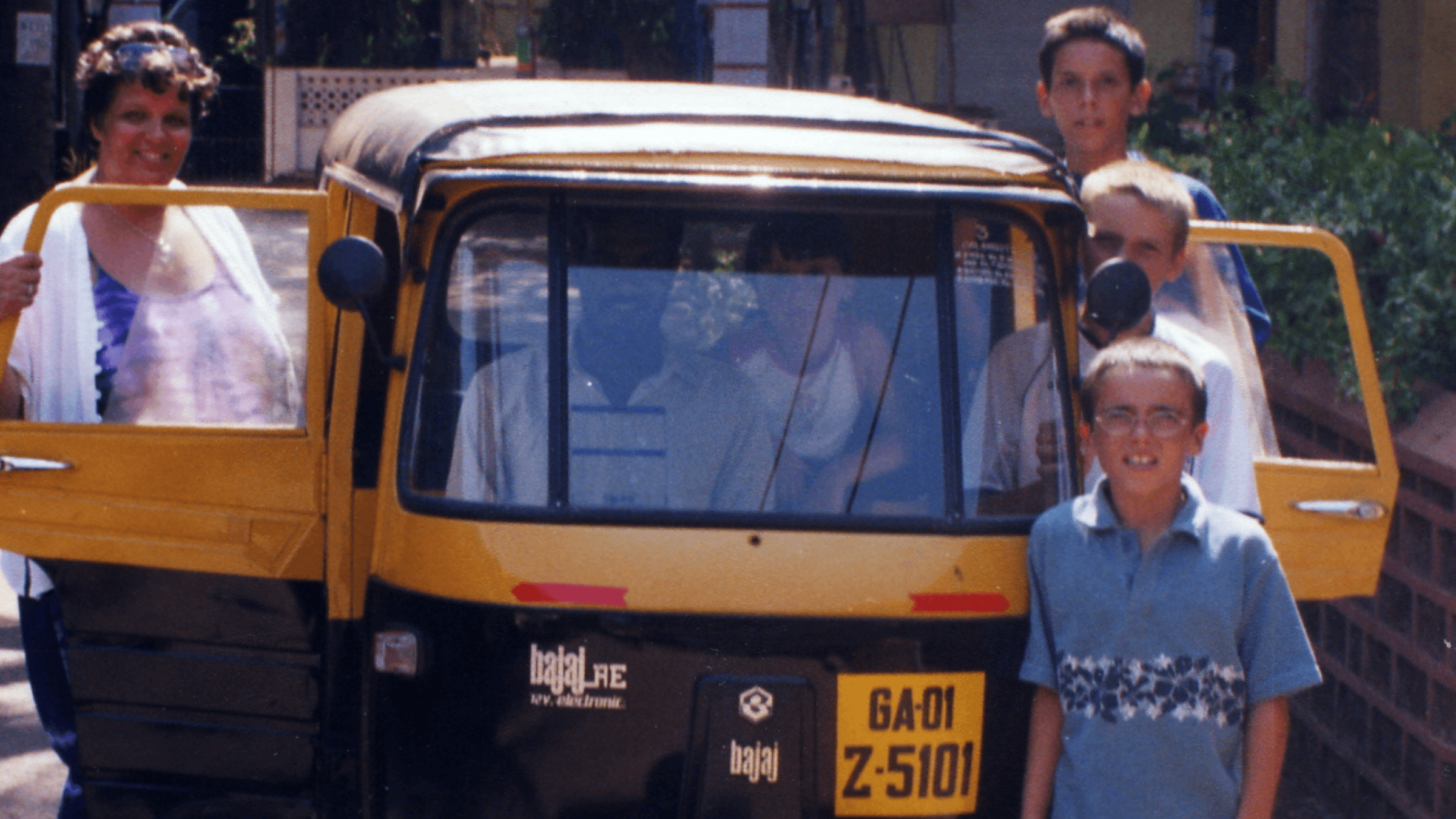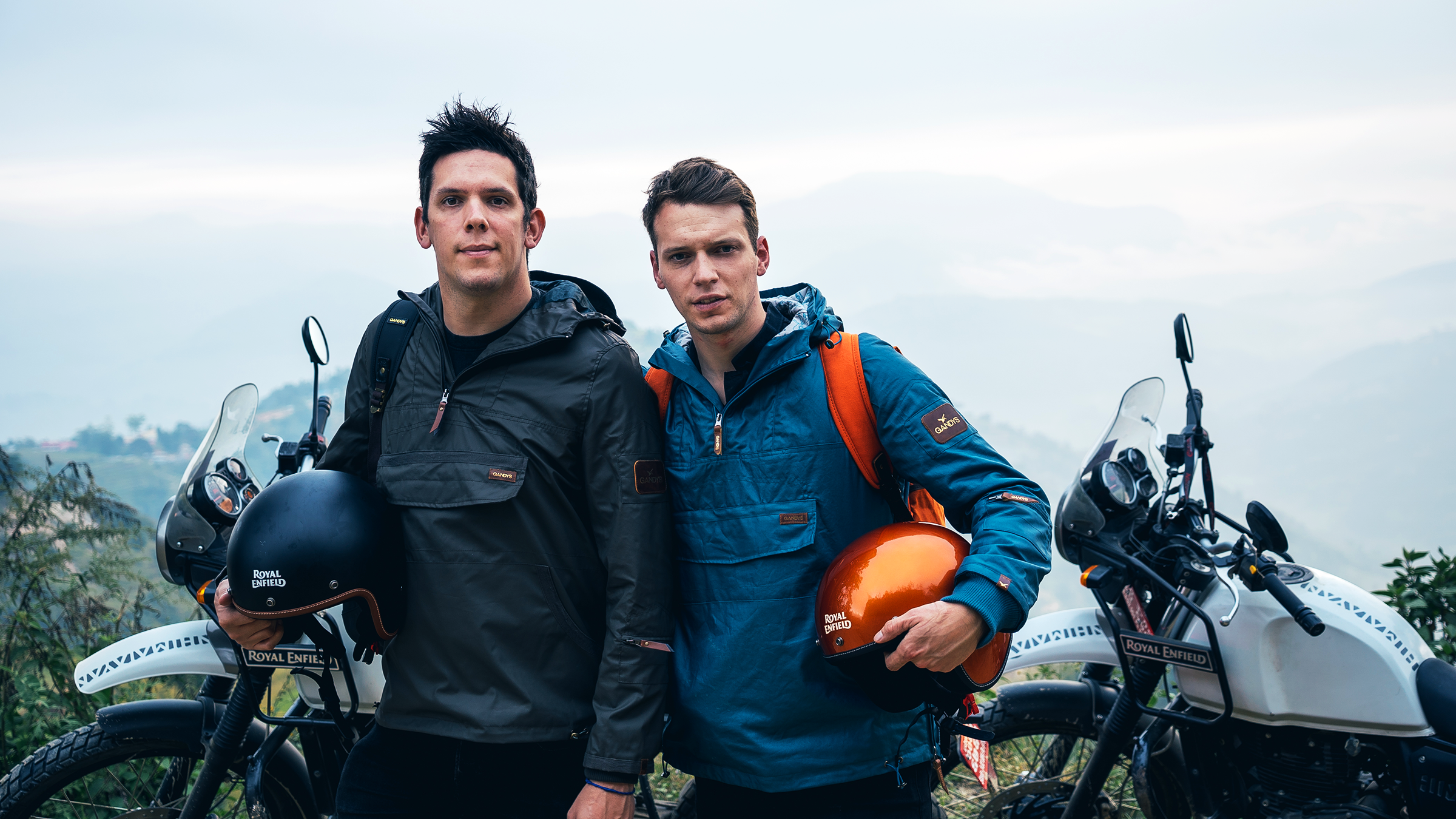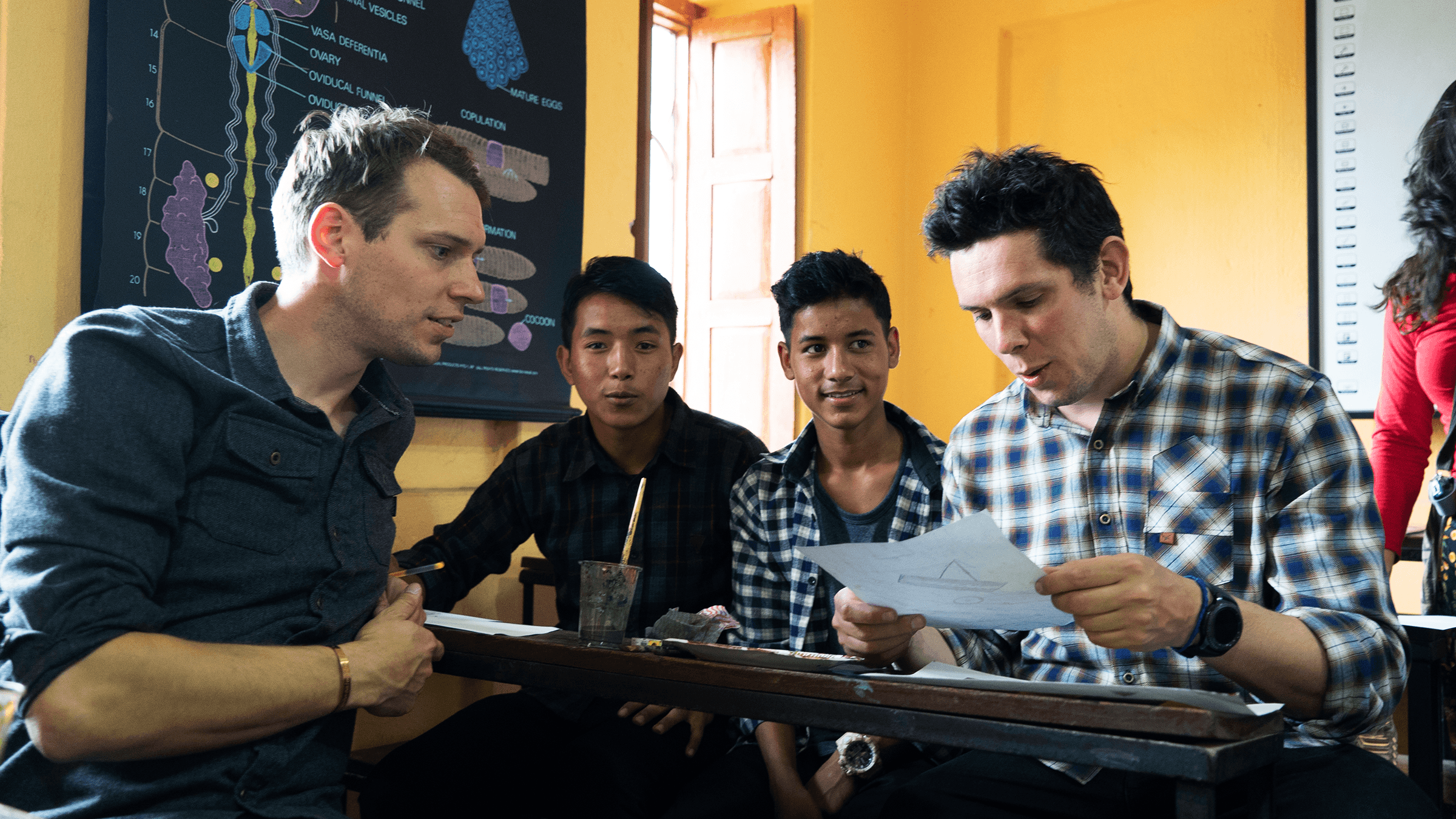One of the more eye-opening pieces of work I have done in lockdown has been interviewing inspirational people in the food and grocery sector for an initiative championing role models. The conversations I’ve had have been so thought-provoking that I shouldn’t have been surprised when one led me to the Forkan Brothers.
The Forkan Brothers, Paul and Rob, are co-founders of Gandys, a lifestyle brand founded in 2012. Last week, I had the privilege of speaking to Paul, and our conversation stayed with me long after I hung up the phone.
Paul is one half of the Gandys duo. Together, he and Rob have built a travel-inspired lifestyle brand driven by social purpose, in memory of their parents who tragically died in the Sri Lankan tsunami in 2004. What started out as a flip flop brand has grown into an online clothing and accessories destination with the strapline: “designed by travellers for travellers.” Not only have the pair seen commercial success – forging collaborations with some of the world’s best-known brands – but they have raised crucial funds for educational projects around the world, building four kids campuses designed to break the cycle of poverty through education.
Paul and Rob had an unconventional childhood. Two of six children, they were raised “to live and experience life to the max.” When they were teenagers, Paul and Rob were taken out of school along with their two younger siblings to travel around Asia, taking part in charitable projects and exploring different cultures. “It was definitely a unique upbringing,” Paul told me, “after some home schooling, my parents thought of a far better way to teach us. We learnt maths by going to the market and bartering for our fruit and veg, then adding up the bill for the shopping. We learnt about religion by visiting temples, mosques and churches across India and we learnt geography and history through travelling the world.
“It was definitely a unique upbringing… I think we definitely got more life experience than most kids our age, and it allowed us to see first-hand the inequality that exists in our world.”
“We played cricket and football with kids from the different projects that our family volunteered at and were involved in. Although we all spoke different languages, it seemed to make no difference at all. I think we definitely got more life experience than most kids our age, and it allowed us to see first-hand the inequality that exists in our world. It was always interesting when we came back for periodic visits to the UK and met our school friends who had entirely different priorities to us.”

Rob and Paul and their two younger siblings were in Sri Lanka with their parents when the tsunami came. Rob and Paul managed to scramble to higher ground and their brother and sister were saved by local people. Sadly, their parents were both killed. The four children came home to the UK in 2004, where they were legally adopted by their 21-year-old sister. The next years were traumatic and extremely difficult but Paul tells me that they were left with a burning desire to build a company that did good. I wondered: why flip flops?
“We wanted to sell a universal product – anyone can afford a pair of flip flops,” explained Paul. “It also really resonated with us… when we were kids, if we weren’t barefoot, we were wearing flip flops – so it linked to our story nicely.”
“When we were kids, if we weren’t barefoot, we were wearing flip flops – so it linked to our story nicely.”
From their small south London flat, the boys set out to sell 235,000 pairs of flip flops – one pair for each person who lost their life in the tsunami. But like all good startup stories, Gandys wasn’t an overnight success, and it took some persuading to convince others of their idea. “We had lots of resource issues,” Paul said, “we were doing our first photoshoots with our iPhone in the bathroom… and our first prototype sandal broke when it got wet!”
But with all of their determination, Paul and Rob smashed their 235,000 target, and raised enough money to build their first kids campus in Sri Lanka, in honour of their parents. Since this time, Gandys has gone from strength to strength, expanding their offering beyond flip flops to beach accessories, swimwear and travel-inspired apparel. They have gone on to sell their products in department stores around the world (at one point becoming John Lewis’ best-selling brand of swim shorts) and a retail store in Spitalfields, London allowed them to showcase their brand and spread their message. Collaborations with Liberty, McLaren and The Rolling Stones served as a nod to their parents’ interests, passions and favourite brands. Today, Gandys operates a DTC model through its website, giving the brothers total control of product distribution.
One of Gandys’ first collaborations was with Monsoon Accessorize. I spoke with Peter Simon, founder of Monsoon Accessorize, who told me that his relationship with the boys and the brand went well beyond their commercial partnership. Recognising that the boys were special, and wanting to help them, in 2014 Peter offered to take the brothers back to Sri Lanka for the first time since the tragedy to visit his own charity project there, including homes for children affected by the tsunami and civil war. “I found them so inspiring,” Peter told me. “Their story is tragic but they showed great resilience and strength to put the tragedy behind them and do something for others. It took enormous courage for them to return to Sri Lanka with me. At our school, they played cricket with the children – it was wonderful to witness.”
Gandys’ growth has continued to power social good around the world. Paul and Rob have now opened four kids campuses, in Sri Lanka, Malawi, Nepal and Brazil, with plans for a fifth in Mongolia well underway. I asked Paul what the motivation is behind their education-focused social enterprise.
“When we lost our parents we were very lucky to be able to come back to the UK,” Paul told me. “Here, there’s a social system, there’s a safety net. In the countries where we have set up campuses, there are fewer systems and structures in place to look out for children in need. In these countries, there are so many things that can act as a barrier to education, ranging from large-scale natural disasters to parents who have an alcohol problem.
“We believe that every child should have a start in life, and that they should be given the tools to be able to make a living, have a career, do good and change the world. So that’s the reason we do our projects abroad.”
“We believe that every child should have a start in life, and that they should be given the tools to be able to make a living, have a career, do good and change the world. So that’s the reason we do our projects abroad.”
I asked Paul why he thinks Gandys stands out from the crowd. “We’ve got our own niche,” he answered, “I wouldn’t put us next to anyone. What we stand for is completely different from other brands, as we pour a percentage of our profits back into our social enterprises. There is no one doing what we’re doing in terms of our foundation.”
It may have been a stupid question, but I couldn’t help asking Paul how his experience of the tsunami compared to our current crisis. “The thing about Covid,” he said, “is that most people are continuing to live their lives, and there’s room to plan and prepare for the future. The tsunami came out of nowhere, and was so immediately destructive for thousands of people all at once – in particular our family.”
For two boys from Croydon, with an unconventional education and orphaned at such a young age, what Paul and Rob have achieved is incredible and courageous. Above all, they are doing something to make the world a better place – they are a shining light and for this, they need all the support and encouragement that they can get.
If you’d like to learn more about Gandys and the Forkan brothers, you can buy their book, Tsunami Kids, here.
Moira.benigson@thembsgroup.co.uk | @MoiraBenigson | @TheMBSGroup









